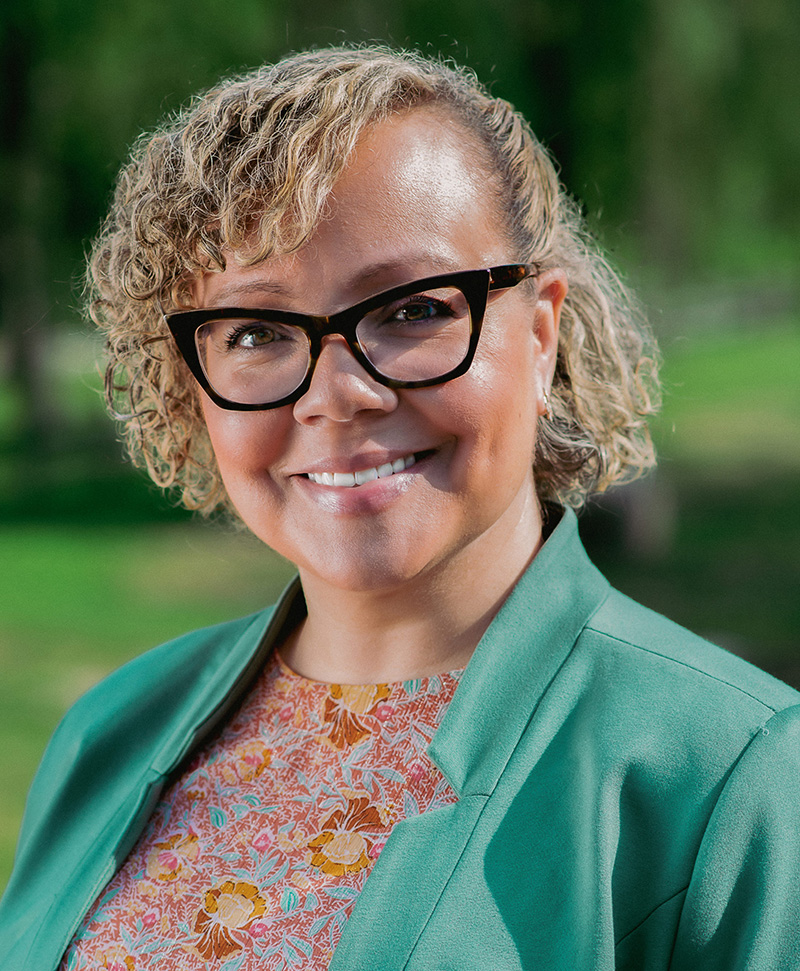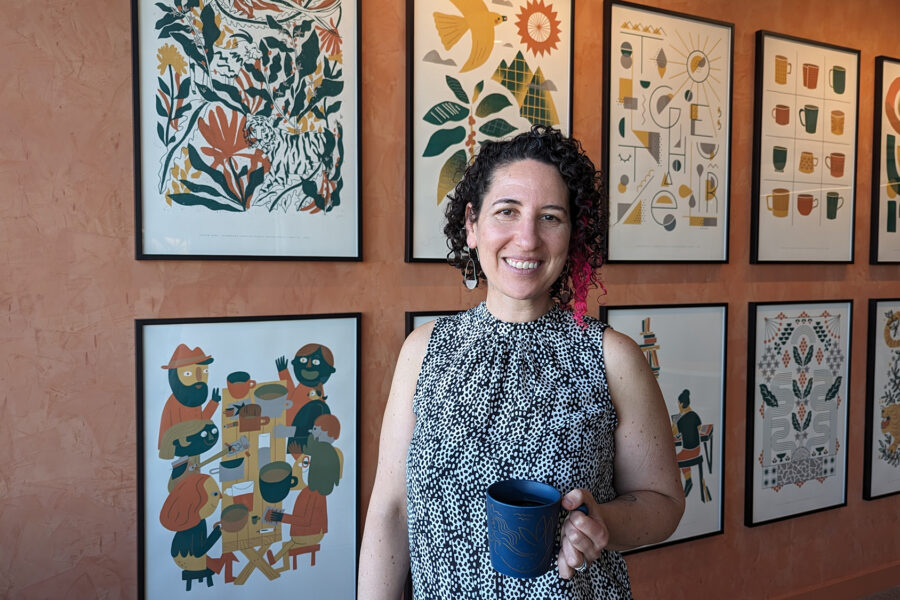Many Americans struggle to recognize the ways that systems that claim to help Black people and others facing discrimination sometimes end up actually harming them, despite the seemingly good intentions of those who set the systems up. For Pia Alexander, though, she doesn’t have to look far to see this pattern in action. She can just think back on her own experience as a kid in New York City’s public school system, when she was identified as academically promising and promptly plucked out of her neighborhood elementary school in St. Albans, Queens, and sent to a different, better school district. “Better,” explains Alexander, “really was synonymous with a white school district.”
The efforts of these teachers and administrators to send so-called gifted students to a different school did work in one respect: Alexander accessed academic opportunities that she wouldn’t have had in her original school district. But it had the side effect of separating her from studying with teachers and friends and neighbors who were embedded within her home community. And it sent a clear message about where excellence belonged. As Alexander says, “What does it tell students when you’re basically saying to them, In order to succeed and to learn, you have to leave your community and go somewhere else?”
Today, Alexander is working as an educator herself, serving as Teaching Faculty in Antioch’s Couple and Family Therapy MA and PhD programs in New England, where she is finishing up her own PhD. And in this work—as in many of the roles she fills out in the world—she is actively working to improve systems and to make their effects less racist. Within Antioch, this work was formalized in April when she was appointed Co-Chair of the University-wide Anti-Racism Task Force.
“I think Queens is the absolute best place in the world,” says Alexander. She comes by this opinion honestly, having lived in four of the five boroughs of New York City and currently living on Long Island, about 45 minutes from the city by car. But it was in Queens where she grew up. Her father was a union worker in the garment industry, and he was descended from ancestors who had been brought to the U.S. as enslaved persons. Meanwhile Alexander’s mother, a Jamaican immigrant, worked as a nurse.
When Alexander graduated from New York University with a journalism degree, it was partly from her Jamaican family and culture that she received a strong message: “You have to do something that provides stability. You have to do something so that you will eat, so that your family will eat.” So she went into TV commercial production. Even though it didn’t make her heart sing, Alexander was good at it. Soon she was executive producing music and sound design for film and TV. She even moved to Los Angeles for a time, and to the U.K., before returning to New York City.
It was when she had kids of her own that Alexander began to reconsider her career. She realized that production and advertising, as she puts it, “just wasn’t where my heart was at all.” She wanted to pursue work that would be of greater service to her community. Soon she realized that one way she could do this could be by helping other parents navigate the public school system—the same system she had navigated as a student, many years earlier. This was just after the New York City School Boards had been dismantled, and transitioned into Community District Education Councils. She ran and was elected as Treasurer for District 26 in Queens. She started helping other parents advocate for their children to get individualized educational plans (IEPs). She served as IEP representative, she was elected as PTA President, she served on the school and district leadership teams. It was there that a school social worker noted her parent coaching abilities. Eventually she got certified to be a parenting coach, and she started to work with coaching clients.
The work wasn’t as transformative as she’d hoped, though. “I would be sitting with these families,” she explains, “And I’d be like, ‘Oh my gosh, I have to refer you out because what you’re really looking for is family therapy, not a coach.’” As she found herself doing this over and over again, she realized, “I need to become a family therapist.”
In therapy, Alexander has found her calling. She is involved in many different aspects of the profession, from seeing a handful of clients in private practice to teaching foundational and higher-level classes in Antioch’s Couple and Family Therapy programs, and from serving on state-level task forces to conducting her own research in the field.

Alexander’s primary research interest is in applying critical social theories to better understand and support maternal mental health and reproductive health for African American women and families. American mortality rates for women giving birth lag the developed world badly, but the numbers specifically for Black women are unconscionably high. According to a study published by the Mayo Clinic, pregnancy-related mortality for Black women over age 25 is about four times higher than for white women of similar ages. This is a public health crisis and a racial justice crisis rolled together.
And for Alexander, the subject is personal, because she herself had a life-threatening birth experience exacerbated by the discrimination baked into the American medical system. When Alexander went into labor for her older child, almost two months before the due date, her doctors dismissed her pain and contractions, insisting over and over, “You’re okay.” (She wasn’t.) Luckily, she survived this traumatic day, and her child did too. But it was scary—and deeply disheartening. As she explains, “At every point, the care did not meet the standard.”
Today, Alexander serves on the New York State Legislature Suffolk County Maternal Mortality & Morbidity Task Force, where she is working to make sure other Black mothers don’t experience what she did. And her doctoral research inquires into the ways therapists intersect with this public health crisis. Alexander is investigating the field of therapy to ask, as she puts it, “How do we contribute to Black maternal wellness and Black maternal wellness outcomes?”
Across her work, Alexander is blazing a trail as one of an emerging type: the practitioner-scholar-activist. And she is bringing that energy to her teaching and leadership at Antioch.
“Pia has been a leader since long before she entered our PhD program in Couple and Family Therapy, and she has only distinguished herself further as a student and faculty member in our programs,” says Kevin Lyness, the Department Chair and Program Director of the PhD program. He was struck in particular by the enthusiasm her fellow students had when she interviewed for her current faculty position. “When we interviewed Pia,” he says, “the students were so positive that it was clear that she should be our choice.”
Another of Alexander’s colleagues, Kristi Harrison, the Program Director of the MA program, has also seen just how enthusiastic students are about working with Alexander, and how useful her input has been as they do the ongoing work of decolonizing the CFT curriculum. “One thing that especially stands out to me is the way she teaches and mentors our students in engaging in critical, power-focused analysis of their work as helping professionals,” says Harrison. “She does so in a way that is equal measures caring and challenging, a balance that requires a deep level of integrity and self-awareness.”
Alexander brings this same energy to her role leading the Anti-Racism Task Force, a body that was convened from across the University in the wake of the 2020 police murder of George Floyd, with the mission of being a forum to reflect deeply and make recommendations on how the University can achieve more completely its antiracism and equity, diversity, inclusion, and belonging goals. During her tenure as co-chair, Alexander has already aided in the hiring process of a new Head of Equity, Diversity, Inclusion, and Belonging; helped run a University-Wide Climate Survey; taken a leading role in development of an Anti-Racism Task Force website; facilitated many meetings; and much more. The forces that in Alexander’s youth led her to be pulled from her community’s school district and sent to a “better,” majority-white school district have not gone away. Neither has the disproportionate danger Black mothers face during childbirth. Systemic racism is still a major part of life in the U.S., much as many would like to wish it away. What has changed is that many more people and institutions have joined the work of studying, protesting against, and reforming these and other systems that perpetuate oppression. Alexander has whole-heartedly joined this struggle, and she’s found key roles to play in it. Her training, passion, and experience prepared her for this work—and her willingness to step forward as a leader is Antioch’s gain.



